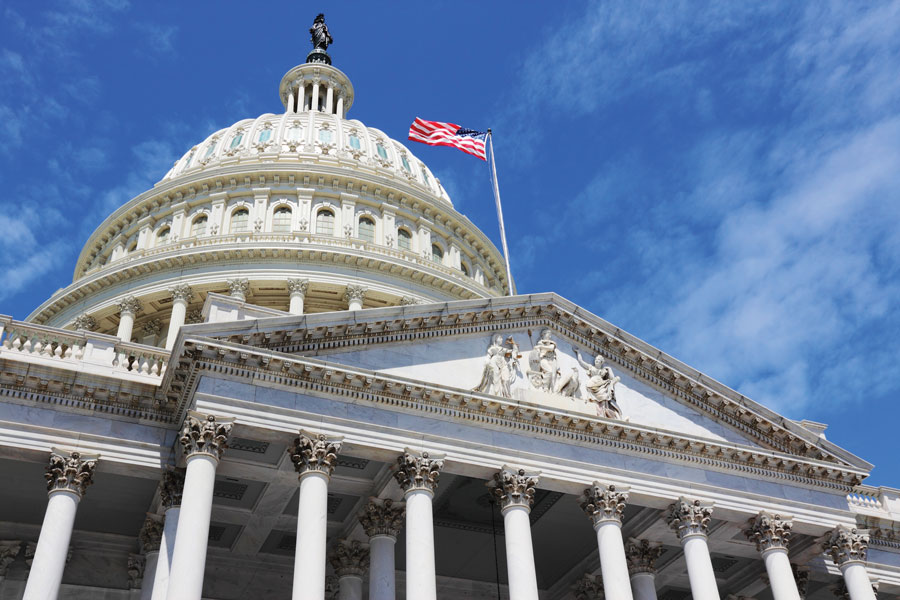

An economic stimulus bill in response to the COVID-19 virus is on a fast track in the Senate and includes provisions to suspend penalties on early access to retirement accounts.
Thursday evening, Senate Majority Leader Mitch McConnell, R-Ky., introduced the Coronavirus Aid Relief and Economic Security Act. The legislation is designed to help businesses and individuals harmed by the coronavirus outbreak and strengthen the health care system.
The bill would waive the 10% penalty on early withdrawals of up to $100,000 from a retirement plan or an individual retirement account for anyone who is diagnosed with the coronavirus, has a spouse or dependent fall ill, or has suffered a financial setback due to the pandemic, according to an analysis by the American Retirement Association.
The bill gives people taking the hardship distributions three years to pay tax on them and repay their plans.
“The Senate proposal strikes the right balance between helping those in immediate need with the longer-term retirement crisis where too many Americans lack adequate retirement savings,” Paul Richman, chief government and public affairs officer at the Insured Retirement Institute, said in a statement. “IRI supports the efforts by Congress and the president to deliver substantial economic aid to Americans and we support efforts to permit targeted access to retirement accounts to those in significant need.”
Empower Retirement, a retirement plan administrator, said Congress and the industry should work together in addressing those suffering due to the coronavirus.
“Empower believes that during times of hardship the public and private sectors should continue their longstanding collaboration and make every accommodation to help support the financial needs of individuals,” Edmund F. Murphy III, chief executive at Empower, said in a statement.
The bill, which is expected to cost $1 trillion or more, is the opening marker in what Mr. McConnell hopes will be a quick negotiation with Democrats, who initially criticized it as too focused on corporate relief.
Mr. McConnell is seeking a final Senate vote by Monday. The measure would be the third that Congress has passed in response to the coronavirus outbreak.
During the talks over the bill, financial industry trade associations are hoping to ease other retirement account rules. A group of 24 organizations sent a letter to lawmakers Friday asking for a temporary waiver of required minimum distributions rules, an extension of filing deadlines for retirement plans, and relief for defined-benefits plans, among other requests.
“We are pleased to see that the CARES Act has included preliminary relief for retirement plan participants,” said Aliya Robinson, a senior vice president at the ERISA Industry Committee. “We look forward to working with Congress to include additional provisions that address further worker and retiree needs and also assist employers in continuing to provide important retirement benefits.”
In a statement Thursday, Sen. Ron Wyden, D-Ore. and ranking member of the Senate Finance Committee, said he supports allowing retirement plan flexibility, including waiving RMDs for IRAs and 401k plans this year and allowing RMDs taken in 2019 to be put back into the plan.
Early withdrawals and loans from retirement accounts have been a concern for retirement savings advocates. As of the end of last year, about 23.5% of 401(k) plan participants had taken loans out against their accounts, according to Alight Solutions.
The coronavirus is roiling retirement saving best practices, which call for people to let money accumulate in their accounts.
“We all recognize this is a unique situation,” said Will Hansen, chief government affairs officer at the American Retirement Association. “If businesses don’t stay afloat, there won’t be any 401(k) plans. We hope these provisions keep businesses open.”

President meets with ‘highly overrated globalist’ at the White House.

A new proposal could end the ban on promoting client reviews in states like California and Connecticut, giving state-registered advisors a level playing field with their SEC-registered peers.

Morningstar research data show improved retirement trajectories for self-directors and allocators placed in managed accounts.

Some in the industry say that more UBS financial advisors this year will be heading for the exits.

The Wall Street giant has blasted data middlemen as digital freeloaders, but tech firms and consumer advocates are pushing back.
Orion's Tom Wilson on delivering coordinated, high-touch service in a world where returns alone no longer set you apart.
Barely a decade old, registered index-linked annuities have quickly surged in popularity, thanks to their unique blend of protection and growth potential—an appealing option for investors looking to chart a steadier course through today's choppy market waters, says Myles Lambert, Brighthouse Financial.
